
Kód: 04534237
Apophasis and Pseudonymity in Dionysius the Areopagite
Autor Charles M. Stang
A PDF version of this book is available for free in open access via www.oup.com/uk as well as the OAPEN Library platform, www.oapen.org. It has been made available under a Creative Commons Attribution-Non Commercial-No Derivative ... celý popis
- Jazyk:
 Angličtina
Angličtina - Väzba: Pevná
- Počet strán: 246
Nakladateľ: Oxford University Press, 2012
- Viac informácií o knihe

Mohlo by sa vám tiež páčiť
-

Order and Innovation in the Middle Ages
126.13 € -
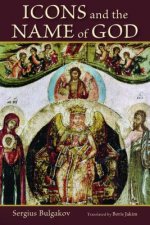
Icons and the Name of God
30.13 € -4 % -

Oxford Companion to Twentieth-Century Literature in English
271.05 € -
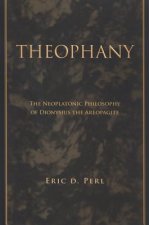
Theophany
131.01 € -

Brief History of Black Holes
15.92 € -37 % -

Before Your Memory Fades
19.47 € -

Heat 2
22.93 € -

Songs from Prudentius
37.54 € -
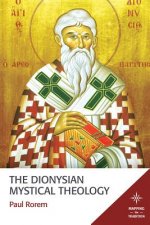
Dionysian Mystical Theology
52.86 € -

Rethinking Dionysius the Areopagite
43.73 € -
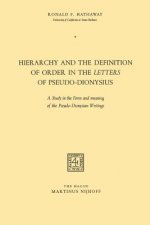
Hierarchy and the Definition of Order in the Letters of Pseudo-Dionysius
138.31 € -
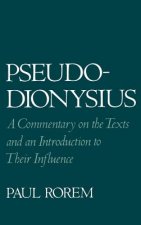
Pseudo-Dionysius
307.38 € -

Carmen
16.73 € -

Channeling Cultures
60.78 €
Darčekový poukaz: Radosť zaručená
- Darujte poukaz v ľubovoľnej hodnote, a my sa postaráme o zvyšok.
- Poukaz sa vzťahuje na všetky produkty v našej ponuke.
- Elektronický poukaz si vytlačíte z e-mailu a môžete ho ihneď darovať.
- Platnosť poukazu je 12 mesiacov od dátumu vystavenia.
Viac informácií o knihe Apophasis and Pseudonymity in Dionysius the Areopagite
Nákupom získate 543 bodov
 Anotácia knihy
Anotácia knihy
A PDF version of this book is available for free in open access via www.oup.com/uk as well as the OAPEN Library platform, www.oapen.org. It has been made available under a Creative Commons Attribution-Non Commercial-No Derivatives 3.0 license and is part of the OAPEN-UK research project. This book examines the writings of an early sixth-century Christian mystical theologian who wrote under the name of a convert of the apostle Paul, Dionysius the Areopagite. This 'Pseudo'-Dionysius is famous for articulating a mystical theology in two parts: a sacramental and liturgical mysticism embedded in the context of celestial and ecclesiastical hierarchies, and an austere, contemplative regimen in which one progressively negates the divine names in hopes of soliciting union with the 'unknown God' or 'God beyond being.' Charles M. Stang argues that the pseudonym and the influence of Paul together constitute the best interpretive lens for understanding the Corpus Dionysiacum [CD]. Stang demonstrates how Paul animates the entire corpus, and shows that the influence of Paul illuminates such central themes of the CD as hierarchy, theurgy, deification, Christology, affirmation (kataphasis) and negation (apophasis), dissimilar similarities, and unknowing. Most importantly, Paul serves as a fulcrum for the expression of a new theological anthropology, an 'apophatic anthropology.' Dionysius figures Paul as the premier apostolic witness to this apophatic anthropology, as the ecstatic lover of the divine who confesses to the rupture of his self and the indwelling of the divine in Gal 2:20: 'it is no longer I who live, but Christ who lives in me.' Building on this notion of apophatic anthropology, the book forwards an explanation for why this sixth-century author chose to write under an apostolic pseudonym. Stang argues that the very practice of pseudonymous writing itself serves as an ecstatic devotional exercise whereby the writer becomes split in two and thereby open to the indwelling of the divine. Pseudonymity is on this interpretation integral and internal to the aims of the wider mystical enterprise. Thus this book aims to question the distinction between 'theory' and 'practice' by demonstrating that negative theology-often figured as a speculative and rarefied theory regarding the transcendence of God-is in fact best understood as a kind of asceticism, a devotional practice aiming for the total transformation of the Christian subject.
 Parametre knihy
Parametre knihy
Zaradenie knihy Knihy po anglicky Humanities Religion & beliefs Christianity
217.67 €
- Celý názov: Apophasis and Pseudonymity in Dionysius the Areopagite
- Podnázov: "No Longer I"
- Autor: Charles M. Stang
- Jazyk:
 Angličtina
Angličtina - Väzba: Pevná
- Počet strán: 246
- EAN: 9780199640423
- ISBN: 0199640424
- ID: 04534237
- Nakladateľ: Oxford University Press
- Hmotnosť: 446 g
- Rozmery: 223 × 143 × 19 mm
- Dátum vydania: 09. February 2012
Obľúbené z iného súdka
-
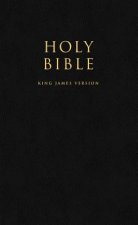
The Holy Bible - King James Version
11.66 € -2 % -
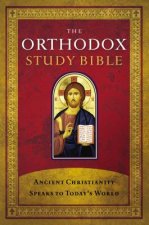
Orthodox Study Bible, Hardcover
48.60 € -3 % -

Prayer Book
31.96 € -

Yoga of Jesus
13.59 € -15 % -

NRSV, Catholic Bible, Gift Edition, Leathersoft, White, Comfort Print
35.81 € -

KJV Holy Bible, Personal Size Giant Print Reference Bible, Burgundy Leather-Look, 43,000 Cross References, Red Letter, Comfort Print: King James Versi
21.50 € -

Jesus Calling, Pink Leathersoft, with Scripture References
18.56 € -13 % -

Feeling is the Secret
7.20 € -

KJV, Value Thinline Bible, Compact, Leathersoft, Brown, Red Letter, Comfort Print
13.79 € -12 % -

KJV, Holy Bible, Larger Print, Paperback, Comfort Print
7.50 € -19 % -

Holy Bible
27.09 € -13 % -

Second Coming of Christ
62.71 € -4 % -
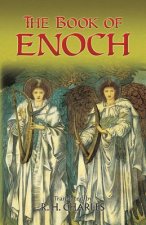
Book of Enoch
9.02 € -19 % -

NKJV, Lighting the Way Home Family Bible, Hardcover, Red Letter Edition
48.60 € -3 % -
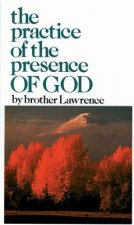
Practice and Presence of God
6.69 € -19 % -

HOLY BIBLE: King James Version (KJV) White Compact Christening Edition
18.56 € -23 % -

Secrets of a Prayer Warrior
9.43 € -9 % -

Disciplines of a Godly Man
15.31 € -23 % -

Message Deluxe Gift Bible, Brown
15.31 € -15 % -

Give Me an Answer
18.66 € -19 % -

Luther Bible of 1534
59.16 € -13 % -
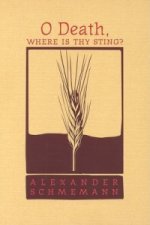
O Death, Where is Thy Sting?
11.97 € -34 % -

Case for Christ
9.12 € -18 % -

NRSV, Catholic Bible, Gift Edition, Leathersoft, Teal, Comfort Print
29.01 € -18 % -

Jesus Calling, Large Text Brown Leathersoft, with Full Scriptures
26.78 € -4 % -

How We Love: Discover your Love Style, Enhance your Marriage (Expanded Edition)
16.84 € -11 % -

Reason for God
11.05 € -23 % -

NKJV, Checkbook Bible, Compact, Bonded Leather, Black, Wallet Style, Red Letter
29.62 € -4 % -

KJV Economy Bible
6.99 € -3 % -

Bible: Authorized King James Version
19.17 € -4 % -

NLT Premium Gift Bible, Purple
18.97 € -1 % -

Angels
19.47 € -18 % -

CSB Compact Bible, Brown LeatherTouch, Value Edition
13.59 € -4 % -

Crime and Punishment
20.19 € -

Confessions
9.43 € -17 % -

Hillbilly Volume 2
18.16 € -6 % -

Embraced
20.19 € -4 % -
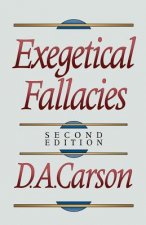
Exegetical Fallacies
19.47 € -18 % -
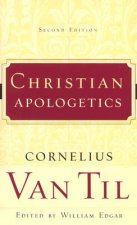
Christian Apologetics
15.42 € -19 % -

Foundation Study Bible-KJV
29.62 € -4 % -

Supernatural
15.42 € -19 % -
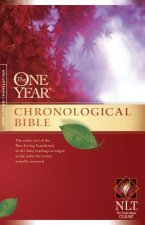
NLT One Year Chronological Bible, The
17.75 € -15 % -

ESV Vest Pocket New Testament with Psalms and Proverbs
8.92 € -13 % -

Real Kosher Jesus
18.05 € -

Gravity and Grace
23.03 € -4 % -

Lacemaker
20.69 € -1 % -
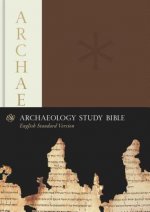
ESV Archaeology Study Bible
58.14 € -17 % -
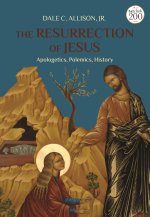
Resurrection of Jesus
40.58 € -14 % -

Holy Bible: English Standard Version (ESV) Anglicised Black Gift and Award edition
12.17 € -23 %
Osobný odber Bratislava a 2642 dalších
Copyright ©2008-24 najlacnejsie-knihy.sk Všetky práva vyhradenéSúkromieCookies



 21 miliónov titulov
21 miliónov titulov Vrátenie do mesiaca
Vrátenie do mesiaca 02/210 210 99 (8-15.30h)
02/210 210 99 (8-15.30h)